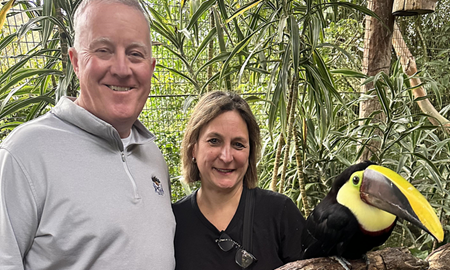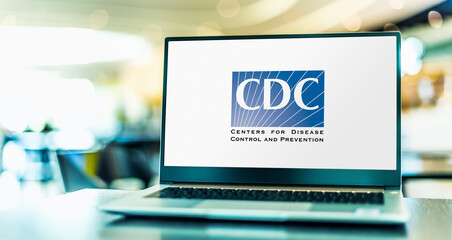
Can Zero-Calorie Sweeteners Raise Your Risk for Cardiovascular Disease?
While artificial sweeteners may seem like a good alternative to sugar to reduce caloric intake, a study published in The BMJTrusted Source suggests there may be a connection between such sweeteners and an increased risk for cardiovascular disease (CVD), including stroke.
The research, conducted by the French National Institute for Health and Medical Research, is not the first study to suggest a connection between artificial sweeteners and increased risk for heart disease, however, it is the largest to date. The study included data from more than 100,000 participant
Is it OK to consume artificial sweeteners?
When people try to cut sugar out of their diets, for reasons such as trying to lose weight or trying to control their blood sugar, they may turn to artificial sweeteners.
Artificial sweeteners have been around for more than 100 years. Saccharin, for example, which is found in the sugar substitute Sweet’N Low, was first discoveredTrusted Source in 1879. Since then, researchers have discovered numerous other artificial sweeteners, including sucralose, aspartame, stevia, and xylitol.
There has almost always been controversy surrounding artificial sweeteners. As the Harvard School of Public Health notes, concerns include the development of type 2 diabetes and weight gain but the evidence is varied and inconclusive.
Despite the concerns, the Food and Drug AdministrationTrusted Source considers the approved sweeteners generally safe to use, as long as people do not exceed the acceptable daily intake for each type.
For example, with sucralose (which is found in Splenda), a 132-pound person could consume 23 packets before going over the recommended limit.
The sweeteners studied
The study began in 2009 with the launch of the NutriNet-Santé e-cohort. People interested in participating in “the world’s largest nutrition study” could sign up online.
More than 170,000 signed up for the study, and the researchers narrowed down their field to 103,388. The chosen participants included people 18 years of age and older, as well as people who filled out questionnaires related to “diet, health, anthropometric data, lifestyle and sociodemographic data, and physical activity.”
The average age of the included participants was 42 years, and the majority of the participants were females (79.8%).
Throughout the following years, researchers periodically gathered information from the participants such as all food and beverages consumed during a 24-hour period. To make sure the participants were being accurate with their food logs, the researchers required them to submit photos.
Additionally, participants also reported their artificial sweetener consumption. The researchers wanted to know the amount and sweetener brand.
Approximately 37% of the participants reported using artificial sweeteners, with the participants divided into non-consumers, lower consumers (artificial sweetener intake below the median), and higher consumers (artificial sweetener intake above the median). The participants consumed an average of 42.46 mg/day. They consumed the following artificial sweetener types:
- aspartame
- acesulfame potassium
- sucralose
- cyclamates
- saccharin
- thaumatin
- neohesperidine dihydrochalcone
- steviol glycosides
- salt of aspartame-acesulfame potassium
The researchers also collected other health information from the participants throughout the duration of the study, including information from “any new health events, medical treatments, and examinations.” Additionally, the participants provided documentation of any reports of CVD.
Higher consumption higher risk
At the end of the study, the researchers compared the number of cardiovascular events that people who consumed artificial sweeteners experienced to the number of events that people who did not consume these sweeteners experienced.
The researchers found that people who were higher consumers of artificial sweeteners had an increased risk of cardiovascular disease compared to non-consumers.
Participants reported 1,502 cardiovascular events during the follow-up, including 730 coronary heart disease events and 777 cerebrovascular disease events.
Higher consumers of artificial sweeteners experienced 346 events per 100,000 person-years and non-consumers experienced 314 events per 100,000 person-years.
3 particularly problematic sweeteners
“Our results indicate that these food additives, consumed daily by millions of people and present in thousands of foods and beverages, should not be considered a healthy and safe alternative to sugar, in line with the current position of several health agencies,” write the authors.
The authors noted that they do not believe the occasional use of artificial sweeteners is as problematic as daily use. “Occasional artificial sweetener consumption is not likely to have a strong impact on CVD risk, and so even if some consumption might have been missed, it would probably have had a low impact on the study results.”
Additionally, the authors noted that three artificial sweeteners in particular were associated with higher risks.
According to the authors, “Aspartame intake was associated with increased risk of cerebrovascular events, and acesulfame potassium and sucralose were associated with increased coronary heart disease risk.”
What experts think
“No calorie artificial sweeteners such as aspartame, saccharin, and sucralose are commonly added to many ‘diet’ and ‘sugar-free’ processed foods like pastries, pudding, candy, soft drinks, and more,” said Dr. Gladd.
“Considering that artificial sweeteners are typically found in highly processed foods, I recommend limiting your consumption of them altogether. Some safer alternatives include natural options such as allulose, monk fruit, and stevia which do not seem to carry the same concerns,” he added.
Article by Medical News Today.
------------------------------------------------------------------------------------------------
To learn more about heart disease and prevention and to earn cardiac related CE hours, Pedagogy offers the following courses:
- Broken Heart Syndrome: Clinical Manifestations, Diagnosis, and Treatment
- Cardiovascular Assessment in the Elderly
- Critical Thinking in Cardiac Assessment
- ECG Interpretation: Basic Rhythms
- EKG Recognition
- Post-Cardiac Arrest Care in the ICU
- Women and Heart Disease
Pedagogy's courses are available for purchase by the individual or facility. For individuals, register with us to create your username and password, click on the course title of interest and then click the Buy Now button. For a complete listing of all our online continuing education courses, including the largest selection of infusion continuing education courses offered online, click here!
For organizations that would like to purchase education for their entire staff, email sales@pedagogyeducation.com and let us know the course(s) of interest and how many staff members you need to provide education for, and we will be happy to send you a price quote.

